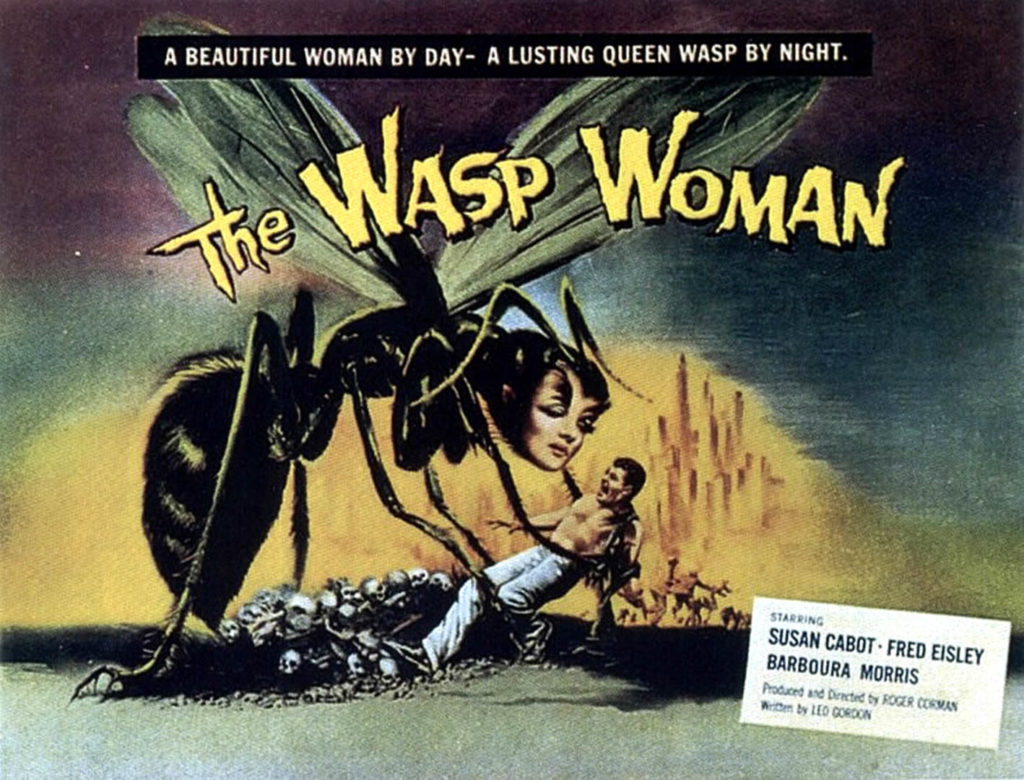
Corman began the 1960s making AIP-adjacent monster Bs, like The Wasp Woman (1959). It centers on the same concept as The Fly a year earlier – the mixing of human and insect parts – but it had around a tenth of the budget of the Fox pic. The Wasp Woman was shot over two weeks on a $50,000 budgetNonetheless, Corman finds ways to introduce his signature flair.
The central character, Janice Starlin (Susan Cabot) is a rare example of a female mad scientist, a cosmetics company CEO. Things aren’t going so well for her and she’s desperate to discover a new product that will reverse the aging process on her face and similarly rejuvenate her company’s fortunes. She meets Eric Zinthrop (Michael Mark), who has been experimenting with wasp royal jelly, rather than the bee kind, and decides she will become the first human test subject for his anti-aging serum. She injects herself with a superdose of the serum and emerges the next morning looking 18 years younger.
As expected, it all goes badly wrong. Starlin and her scientist friend must be punished for their presumption. Zinthrop is knocked over by a truck and ends up in hospital, in a coma, unable to monitor his experiment. Starlin’s secretary and friends start snooping around, suspicious that Zinthrop is trying to rip her off. She alas, has developed a taste for ripping off the heads of snoopers as, rather unfortunately, the high doses of wasp jelly intermittently turn her into a Wasp Woman.
In a classic AIP bait and switch, Wasp Woman doesn’t look anything like the picture on the poster, a giant six-legged wasp body with the head of a woman. Instead, she transforms into a woman with a furry wasp’s head that’s more of a callback to the Wolf and Ape movies of the 1930s than insectoid in form.
The special effects also require a significant suspension of disbelief: Corman relied mainly on practical tricks to save money and speed up post-production. So, when the Wasp Woman plunges her proboscis into her victim’s necks, Susan Cabot spits out chocolate sauce to represent blood (a go-to effect for and white film).
Despite, or perhaps because of its flaws, The Wasp Woman‘s particular brand of counterculture dissatisfaction (a feisty female protagonist challenges the status quo) connected with the drive-in crowd and paved the way for more Corman low-budget hits. It has since achieved cult status.
The Wasp Woman was remade as a TV movie in 1995, as part of the Roger Corman Presents… series.
- The Wasp Woman on TCM
- The Leech Woman’s Revenge – on the Dread of Ageing in a Low Budget Horror film: A re-reading of the movie as the mirror of female desire and male fear of aging women.